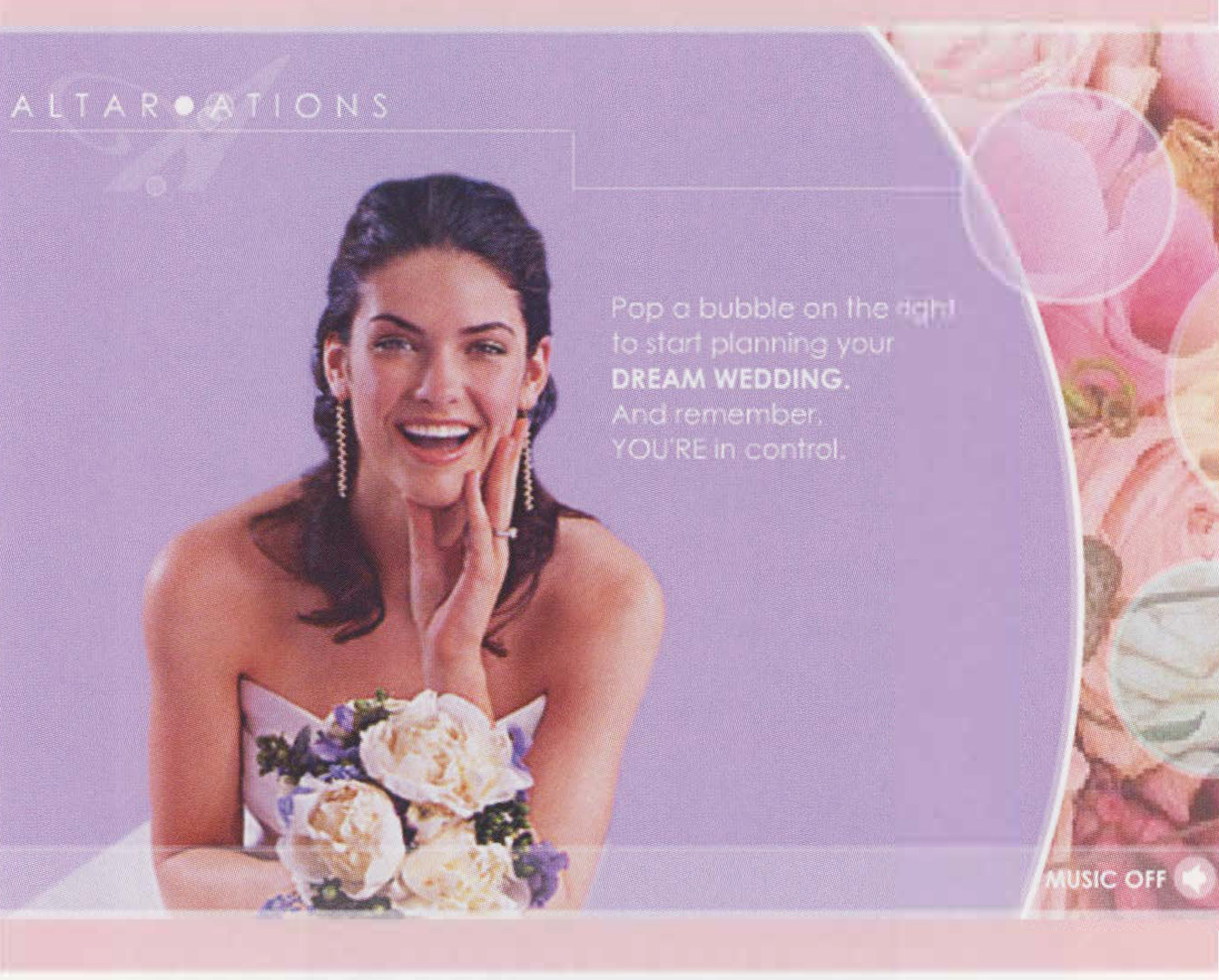Juliet Davis: Altar-ations
Artist(s):
Title:
- Altar-ations
Exhibition:
Medium:
- Interactive media art
Category:
Keywords:
Artist Statement:
Altar-ations is a wedding planner gone awry. It questions who is really in control of a woman’s self-image and gender construction, while it also brings into focus illusions of choice and control that are commonly rendered through the internet interface itself. Choose your engagement ring, spin for your spouse, build a better baby, and manage your virginity-these options are all just a click away, or so it seems. The cybertales become “fractured” (deconstructed) as we navigate the satirical interface and trigger excerpts from serious interviews with young people who are contemplating sexuality, marriage, commercialism, and reproductive technologies.
Each section of Altar-ations is based on feminist theory and political dialectics circulating around specific gender and ethnicity issues such as gay marriage, genetic engineering, and sexual consent. The project was designed to generate student dialogue about these issues as they engaged in the interviews and helped to produce the project. Students came from a wide range of backgrounds. For example, two students were from the Middle East, one of my students is from Sierra Leone (where the blood-diamond trade threatens the lives and limbs of villagers), one is a Catholic Italian-American, and another is gay and Christian. They brought invaluable perspectives to the project.
Technical Information:
Altar-ations is a game created with Photoshop, Illustrator, Flash, and SoundForge. The goal was to create functionality and interactivity that would allow participants to engage with gender and ethnicity issues through multimedia experiences. A wedding planner seemed to be an ideal interface concept because it could simulate the dynamics of choice and control that brides seem to desire.
The first step of the project was the brainstorming and experimentation phase: creating rough storyboard sketches while researching issues and sources to be parodied (for example, bridal magazines and wedding-planner web sites, diamond and biotech companies, music and sound effects, scholarly articles and theories). We also experimented with how ideas get dramatized, and what technologies can be used in interactive play, to create dramatic tension and release (how those technologies channel desire). Then, I created an interface in Flash with the home page: bubbles, flowers, and rollovers. Finally, student interviews were recorded. They directed the rest of the project and determined the scenes. For example, excerpts about “virginity” turned into “Virginity Management.” Students helped to produce the project; for example, Dana Corrigan created vector drawings for the babies section and passed them on to me to animate in Flash.





